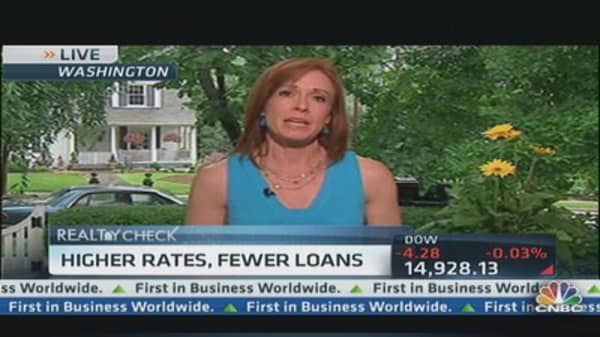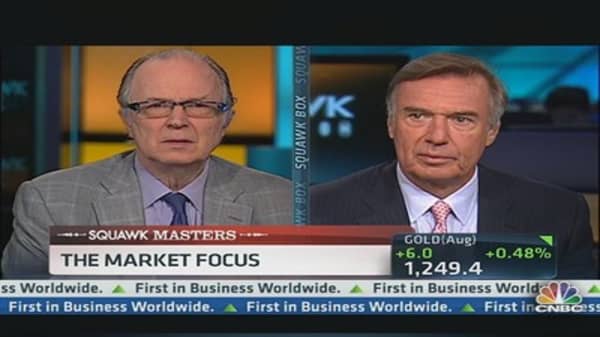"Last week mortgage rates retreated from a 23-month high as the Fed sought to reassure markets that the wind-down of the stimulus program would be gradual, and contingent upon strong improvement in economic fundamentals," said Erin Lantz, director of Zillow Mortgage Marketplace.
"This coming week, market participants will be focused on Friday's jobs report as an indicator of whether the economic recovery is strong enough to withstand an earlier-than-expected withdrawal of Fed stimulus."
Mortgage rates are up about a full percentage point from where they were at the beginning of May. That translates into about a 15 percent jump in monthly payments for the average home buyer, or 15 percent less purchasing power, depending on how you look at it. That can certainly be make or break for some buyers, especially first-time home buyers who may have been stretching in the first place.
"Applications for new home purchases have continued to move sideways over the last month, but that may be people are rushing to buy or lock in mortgage rates before rates move even higher," said Michelle Girard of RBS Securities. "It may be that there is going to a bit of a lag effect. I still think rates are historically low, and we are in an improving economy, although a gradual one, the recovery can continue, maybe the pace will moderate—but I do not think the back up in mortgage rates is going to derail the housing recovery."






